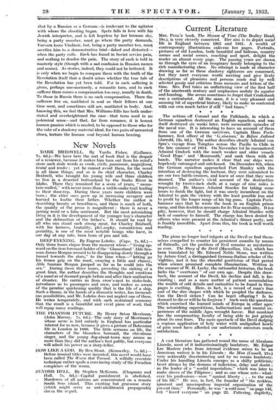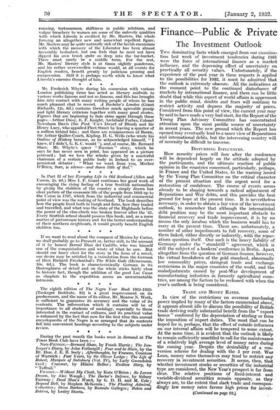A vast literature has gathered round the immune of Abraham ,
Lincoln, most of itindiseriminating,ly laudatory. Mr. Edgar Lee Masters (who from internal evidence seems to be an American writer) is in his Lincoln : the Man (Cassell, 21s.) very noticeably discriminating and by no means laudatory.' Under his handling Lincoln emerges as a shifty politician,. beset always by the demons of indecision, delay and doubt ; es the leader of a " sordid imperialism," which was later to make slaves of the Filipinos ; -and as one whose acts—what= ever his professions—were " against liberty . . . to the end of his life." He seas, in fact, the founder of " the reckless, ignorant and unscrupulous imperial organization of the ' present time." Personally, he was " a cold man " on page 145, but " loved- everyone " on page 22. l'altering, duplicity, cunning, tortuousness, shiftiness in public relations, and vulgar treachery to women are some of the unlovely qualities with which Lincoln is credited by Mr. Masters, the whole forming an altogether new and somewhat repellent figure. Mr. Masters may be quite naturally sick of the laYish encomium with which the memory of the Liberator has been almost invariably bedaubed, but' one feels that he need not have dipped his own brush quite so deep into the tar-bucket. There • must surely be a middle term. For the rest, Mr. Masters' literary style is at times slightly ponderous, and his rather over-swollen volume would, at all events for English readers, benefit greatly by judicious pruning and compression. Still it is perhaps worth while to know what Lincoln's enemies thought of him.







































 Previous page
Previous page